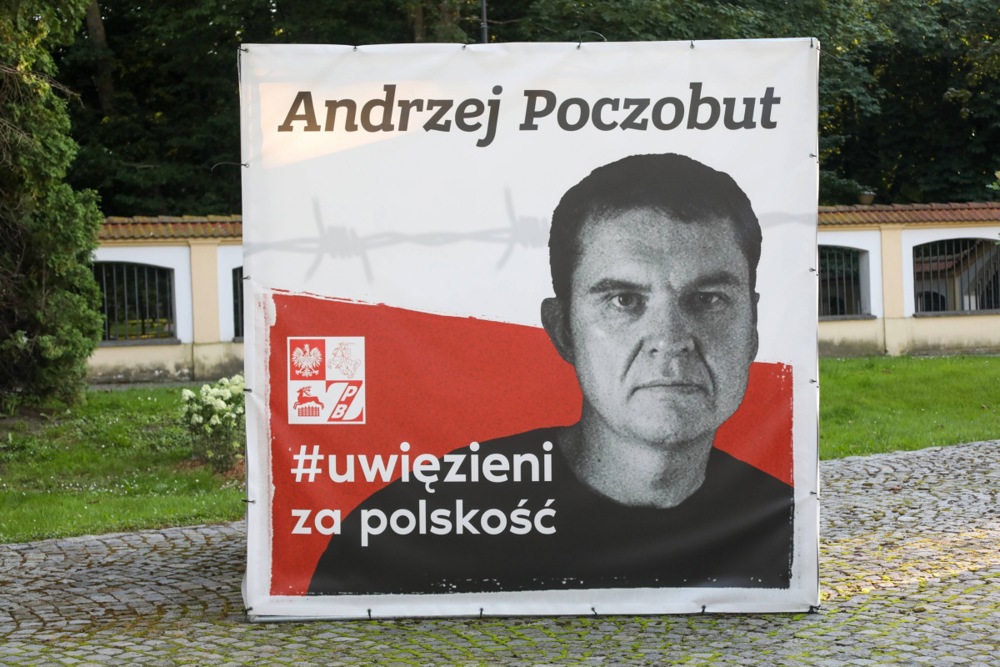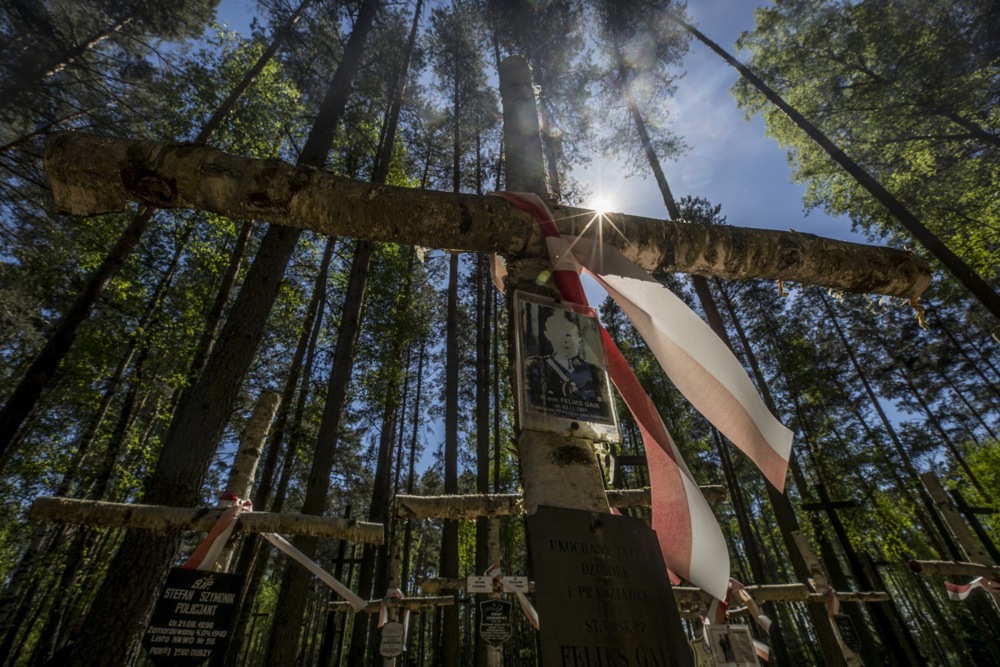Green Border, a prize-winning movie by Polish film director Agnieszka Holland about events on the Polish-Belarusian border, has been condemned by the country’s ruling PiS party as defamatory to Poland and its border guards.
The denouncement comes ahead of Polish national elections on October 15, for which migration is a central PiS campaign issue.
Now on release in Polish cinemas, Green Border premiered at this year’s Venice Film Festival to critical acclaim, securing the Jury Prize for Holland. The director, who emigrated to France in 1981, is best known for her 1990 film Europa Europa, for which she received a Golden Globe Award.
Her latest film Green Border follows a fictional group of refugees trying to get into Poland from Belarus. Once across the frontier, they are sent back by hostile Polish Border Guards apparently unmoved by their plight.
The events, which the director claims are based on testimonies of migrants, are set in 2021 before the erection of a border wall and electronic surveillance barrier, which has made the crossing far easier for Poland to police.
The leader of the PiS, Jarosław Kaczyński, waded into the controversy on September 22 by asserting that the film constituted a “preparation for tearing down the wall and agreeing to relocation [of migrants]”.
He also called Green Border “shameful” in that it “demonised and defamed the men and women protecting Poland’s and EU’s borders”.
Kaczyński alleged that the movie was financed “to a large extent by those who today constitute the basis of the main opposition force, because both Warsaw and Mazovia [a central region of Poland that includes Warsaw] are ruled by the opposition and, on the other hand, by various external institutions, also related to the European Commission”.
The PiS has made migration a key point in its campaign for October’s general election and has included two questions on the topic in a referendum it intends to hold on the same day as the national vote. One is about the EU’s Migration Pact and the other refers to the maintenance of the border wall between Poland and Belarus.
During its election campaign, the PiS has consistently reminded voters that the previous Liberal administration (2007-2015) was willing to accept the relocation of illegal migrants from other European Union Member States in line with European Commission expectations in 2015 and that in 2021 it voted against the building of the barrier on the border with Belarus.
Poland’s interior ministry has decided to release a short, separate film about the border crisis that is to be shown ahead of all viewings of Green Border in Polish cinemas that receive public financial support.
That move was criticised by leader of the Polish PO party, Donald Tusk, who said that it was not the job of governments to review films and that the decision discredited the authorities and not the film. Some cinemas have refused to show the government’s film.
Polish public television hurriedly organised a concert backing the border guards a day ahead of the Green Border’s release in the country.
Demonstrations of support for the guards were also organised in several locations under the slogan: “We’re all behind our boys in uniform”.
PiS officials have repeatedly contrasted their support for the Polish Border Guards with that of metropolitan intellectuals expressing sympathy for illegal migrants
Holland, who is a fierce critic of the present Polish government and a declared supporter of the Liberal opposition, has accused the authorities of conducting a “hate campaign” against her film.
The director may also have been trying to use the controversy to her advantage at the box office when she said: “If you want to support us, tell everyone you know to go to the cinema and see for themselves whether it is an anti-Polish film or whether it is a film that touches our hearts and consciences.”
In any case, since many ministers and politicians from the ruling party are condemning Green Border and opposition politicians are telling people to go and see it for themselves, Holland’s film has received an unprecedented level of free publicity.
The centrist Polish People’s Party (PSL), standing in the election in alliance with another centrist party Poland 2050, feel the film is bad news for the opposition.
Alliance MP Władysław Teofil Bartoszewski told Brussels Signal that “from a political perspective, the release of this film before the election is a mistake” because it builds a damaging narrative for the opposition of being “pro-migrant whereas the ruling party is defending Poland’s security. Such a conclusion may increase support for the government”.
Bartoszewski also said that while he empathised on a human level with the illegal migrants, he could not support or tolerate them as “these are people who have paid big money, aided and abetted by [Aleksandr] Lukashenko [President of Belarus], to illegally cross our border”.
In addition, he voiced support for the work of the border guards in stopping illegal migration and said that he would not be going to the cinema to watch Green Border.
Łukasz Warzecha, a commentator who writes for the Conservative-leaning weekly Do Rzeczy, also said he had no plans to see the film. “Obviously I won’t comment on its artistic value not having seen it but I certainly can assess its ideology given reports about it and knowing the work of the film director concerned,” he said.
Despite not having seen it, he called the film, which is shot in black and white, “political agitation based on a biased view of the situation on the border which has been made to look like a documentary rather than fiction”.
Warzecha added that Holland had in that way “treated the issue instrumentally and in a one-sided way decided who the ‘goodies’ and baddies are.”
Psychologist Aldona Olchanowska, who has seen Green Border – which played to full houses in many Polish cinemas over the weekend of September 23-24 – told Brussels Signal: “The film’s scenes are reminiscent of a documentary” and added that fellow cinema-goers had rewarded the movie with “a standing ovation at the end”.
“Those watching it were backing its message and … demonstrating their feelings about the authorities which tried to make cinemas show the government’s propaganda,” Olchanowska said.





